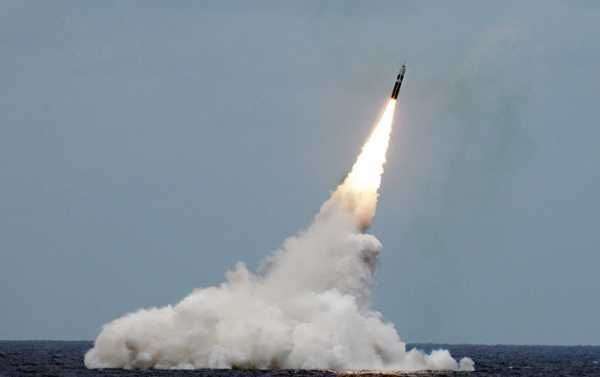
A Pentagon official specializing in China recently warned that while US competition with China is “not a replica” of the 40-year Cold War waged against the Soviet Union in the 20th century, it is “equally as consequential and therefore merits the same concentration of effort.”
As the US rushes to confront China as it continues to assert its military and political power in East Asia, one Pentagon official has warned a congressional advisory committee that the competition will be neither short nor cheap.
Sbragia pointed to Chinese military expansion, especially of its maritime forces, as a key indicator that Beijing is taking seriously its ability to assert power inside what it calls “the first island chain,” or those archipelagoes bounding the eastern coast of Asia, stretching from the Kuril Islands to Japan, the Senkaku Islands, Taiwan, the Philippines and Borneo.
According to Beijing’s tripartite plan for meeting and exceeding US technological capability in war by 2049, once Chinese forces reach technological parity with the US and begin to surpass them, China’s People’s Liberation Army will focus on denying US forces the ability to operate not just inside the First Island Chain, but also inside the Second Island Chain, which is formed by the Marianas and Caroline Islands, as far south as New Guinea.
“The implications of China’s global expeditionary capacity and military modernization, however, may be profound. This is a long-term challenge that will require sustained funding and strategic planning to address. It will require an increase in regional and global investments, as well as redoubling inter-agency and allied and partner efforts to maximize efficiencies and to unify,” Sbragia told the committee.
Sbragia’s concerns reflect those voiced in the pivot in US national security policy in late 2017 and early 2018, when the National Defense Strategy, National Security Strategy and Nuclear Posture Review declared that “inter-state strategic competition” and “great power competition” with Russia and China had become Washington’s new focus, not the global war on terror that had dominated US policy since the dawn of the century. However, the move was prefigured by US President Donald Trump’s predecessor, Barack Obama, in his 2012 “Pivot to East Asia,” which began to de-emphasize the Middle East in foreign policy in favor of the Pacific.
Sbragia’s job is also new, having been created in June 2019 to serve as the “principal advisor to the Secretary of Defense on all things China” and to become a “single hub for policy and strategy development, oversight, authorities review, and national-level interagency integration to align the Department’s efforts on China,” according to a department statement viewed by Defense News. Previous parallel positions for other regions existed, but not for China.
Sourse: sputniknews.com






